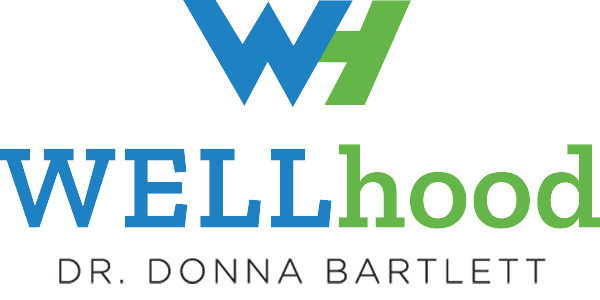October is Health Literacy Month
Though Health Literacy is a Practice to Use Year Round
Guest Author: Hannah Chapman, PharmD Candidate 2023
Do you know what health literacy is? – And no, it is not just being able to read the words on the medication pamphlet attached to your medications or on the summary of your visit from the doctor’s office. You can have the highest reading level and still be health illiterate.
October, is more notorious for being mental health awareness month, breast cancer awareness month and a month filled with goblins and ghouls, but did you know that it is also National Health Literacy Month? There is nothing spookier than not knowing what is going on at your doctor’s appointments, pharmacy pickups, and even when watching commercials for new medications.
A Scary Encounter
I recently worked in a local hospital’s pharmacy department, completing medication reconciliations for newly admitted patients. I have access to my patients’ dispense history from their community pharmacies, so prior to interviewing patients, I have an idea of what medications they are on and should be regularly taking. Upon interviewing a new patient I learned that they did not know the names of the medications they pick up at the pharmacy, nor did they know what the medications are treating. Each question was met with a shrug and an “I do not know.” The patient was simply taking their medications each day blindly and only calling the pharmacy when their bottles became empty. Fearful thoughts of “what if they are taking their medications incorrectly?” and “how has no one counseled them on their medications?” circled my head, but quickly I began working with the pharmacy to provide tools so that the patient could improve their health literacy.
Well-Informed vs Appropriate
According to the CDC, health literacy is the degree to which individuals have the ability to find, understand, and use information and services to make informed health-related decisions and actions for themselves and others. Health literacy is a strong predictor of good health outcomes and health status. Some of the goals of health literacy are to:
- Emphasize people’s ability to use health information rather than just understand and read about it
- Focus on the ability to make “well-informed” decisions rather than “appropriate” ones
- Acknowledge that organizations have a responsibility to address health literacy; doctors’ offices, pharmacies, and other settings where healthcare is provided
- Incorporate a public health perspective
Let’s focus on the second bullet and what a “well-informed” decision means versus an “appropriate” one. Have you ever left the doctor’s office with a new prescription that you were not expecting to get when you walked through their doors? Did you then fill the prescription and just accept the medication as is rather than thinking about if you actually need it? It may seem “appropriate” to listen to your doctor, but are you “well-informed” of why certain changes are being made to your health? I strongly encourage all patients to question their new medications in order to learn more about it.
The Dreaded Prescribing Cascade and Polypharmacy
More often than one thinks, medications are prescribed to fix a side effect of another medication rather than adjusting the root cause of the issues, the first medication. Your new medication can then also have side effects which may need further medications to correct…then all of a sudden you are taking +5 medications and have fallen into what we call the prescribing cascade and are now classified as a polypharmacy patient.
Polypharmacy is when a patient takes 5 or more prescription medications. Often patients do not question their medications and continue to accept the additions and then over time they are on more medication than they can bare! The issue with this is that with each medication added there is an increased risk for medication mix-ups and taking them incorrectly which then leads to negative outcomes! Being health literate can avoid this mess if the right questions are asked and open conversations are had between doctors and patients. Some good questions to ask to better assist in improving one’s health literacy are:
- Why am I taking this medication?
- Is one of my health conditions not being treated effectively or is this a medication for a new health condition?
- Could my new health condition be a result of a side effect of a medication I am already on?
- Why do you think I am a good fit for this medication?
- Is this medication needed?
- Do I understand how to properly take this medication?
- How often and for how long should I take this medication?
- What should I monitor for when taking this medication, and who do I call with issues?
Regularly Used Medications Are at Risk Too
Poor health literacy is not just about taking a new medication, but poor health literacy can also have a negative impact on a patient’s regular medications. If a patient has poor health literacy then there can be confusion on their medications with differences in the route of administration, the time or frequency, the dose, or mixing up what each medication is for. It is not uncommon for patients to take a medication the same way every day believing it is correct only to find out later they should be taking it differently in order to have optimal effects of their medications.
Issues regarding one’s understanding of how medications are to be taken become increasingly apparent in low health literacy patients when their medications are being adjusted (switched, stopped, or changes in dosages). It is important to dispose of old medications being adjusted once a new one is prescribed, to avoid side effects from taking the wrong dose. This issue can be prevented by using the deprescribing form which keeps track of what medication is being taken away or adjusted, how it is being adjusted, why it is being adjusted, what to look out for with such adjustments, and how this new medication makes you feel.
You Can Do It!
Now you may be self-reflecting and wondering if you are health illiterate and taking medications and you’re unsure of why or what they are for, not as health literate as you thought, or have fallen into the prescribing cascade/polypharmacy as a result and that is okay! There are some tools that can be used to help you get on your path to health literacy, better health, and a better understanding. Some tools to consider implementing are:
- Deprescribing Form (mentioned above) for medication adjustments
- Deprescribe and Optimize Checklist for all medications
- Question List Template for an exhaustive list of questions to ask healthcare providers
- Implementing the teach-back method where instead of confirming with your doctor in a yes or no response regarding your understanding, you ask if it would be okay if you repeated what you understand back to them so they can confirm that you have the correct information or correct any mistake you may have made. Correcting mistakes at the root will prevent future complications and negative outcomes.
Remember, it is never too late to improve your health literacy and adjust your health. Expanding your knowledge of what is going on with your prescription medications is always a WISE and WELL decision that can improve your outcomes!


0 Comments